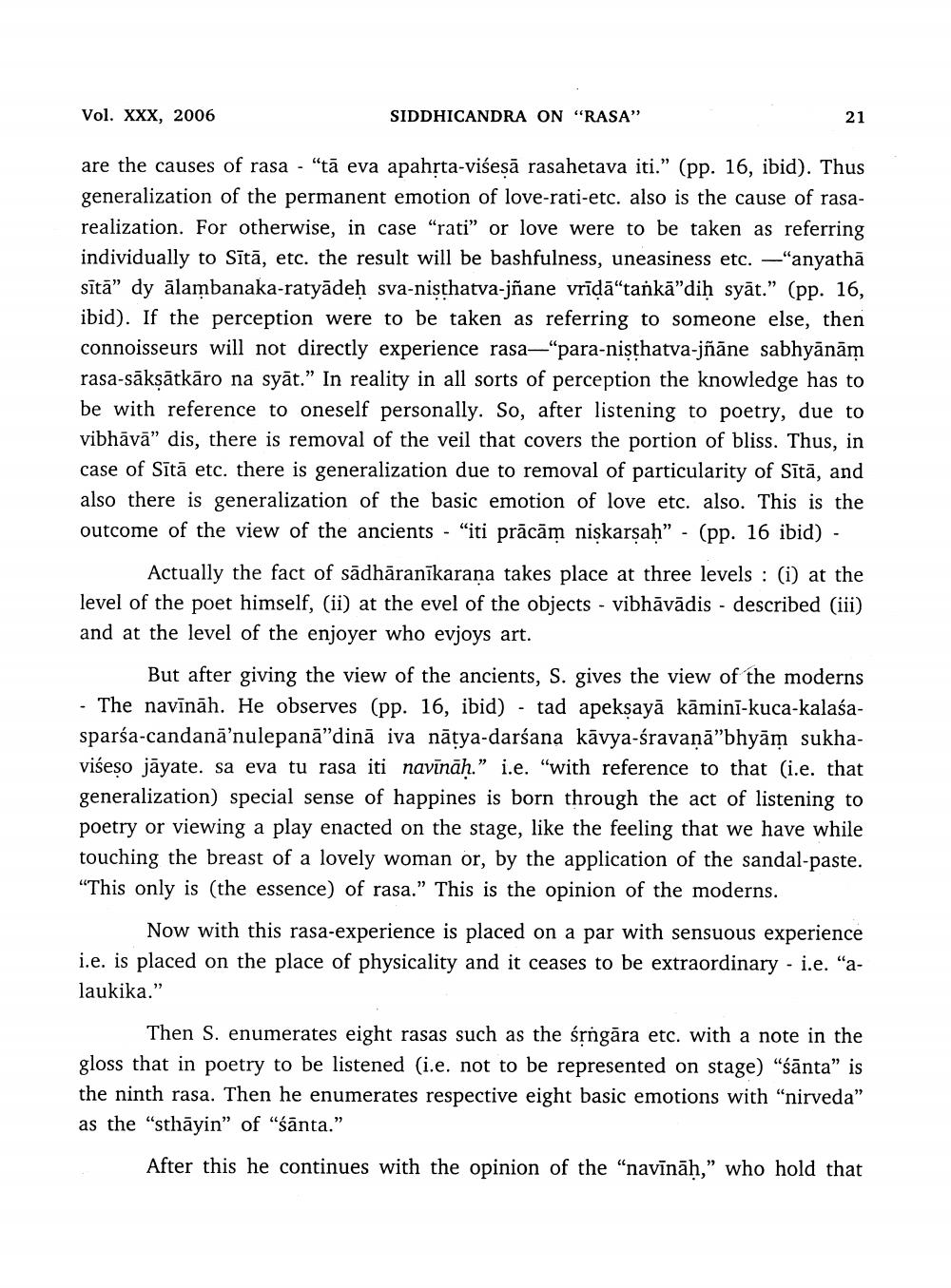________________
Vol. XXX, 2006
SIDDHICANDRA ON “RASA"
21
are the causes of rasa - "tā eva apahrta-višesā rasahetava iti.” (pp. 16, ibid). Thus generalization of the permanent emotion of love-rati-etc. also is the cause of rasarealization. For otherwise, in case "rati” or love were to be taken as referring individually to Sītā, etc. the result will be bashfulness, uneasiness etc. —"anyathā sītā” dy ālambanaka-ratyādeḥ sva-nisthatva-jñane vrīdā"tankā”dih syāt.” (pp. 16, ibid). If the perception were to be taken as referring to someone else, then connoisseurs will not directly experience rasa-para-nişthatva-jñāne sabhyānām rasa-sākṣātkāro na syāt.” In reality in all sorts of perception the knowledge has to be with reference to oneself personally. So, after listening to poetry, due to vibhāvā” dis, there is removal of the veil that covers the portion of bliss. Thus, in case of Sītā etc. there is generalization due to removal of particularity of Sītā, and also there is generalization of the basic emotion of love etc. also. This is the outcome of the view of the ancients - "iti prācām nişkarşah” - (pp. 16 ibid) -
Actually the fact of sādhāranīkarana takes place at three levels : (i) at the level of the poet himself, (ii) at the evel of the objects - vibhāvādis - described (iii) and at the level of the enjoyer who evjoys art.
But after giving the view of the ancients, S. gives the view of the moderns - The navīnāh. He observes (pp. 16, ibid) - tad apeksayā kāmini-kuca-kalasasparsa-candanā'nulepanā"dinā iva nātva-darsana kāvya-śravanā"bhvām s
ate. sa eva tu rasa iti navīnāḥ." i.e. "with reference to that (i.e. that generalization) special sense of happines is born through the act of listening to poetry or viewing a play enacted on the stage, like the feeling that we have while touching the breast of a lovely woman or, by the application of the sandal-paste. "This only is the essence) of rasa.” This is the opinion of the moderns.
Now with this rasa-experience is placed on a par with sensuous experience i.e. is placed on the place of physicality and it ceases to be extraordinary - i.e. "alaukika."
Then S. enumerates eight rasas such as the śrngāra etc. with a note in the gloss that in poetry to be listened (i.e. not to be represented on stage) "śānta” is the ninth rasa. Then he enumerates respective eight basic emotions with "nirveda" as the "sthāyin" of "santa.”
After this he continues with the opinion of the "navināh," who hold that




